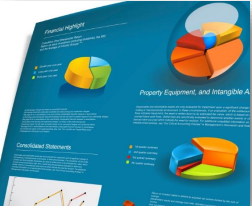
Ebru Oydağ
CHANGING ROLE OF FINANCE IN THE BUSINESS WORLD
Finansal Kontrolden Toplam Şirket Performans Yönetimine...

Our today’s guest of “CFO Gözüyle” article series, which is prepared under the sponsorship of STS Bilişim/ Jedox, will be Ebru Oydag.
How Finance Departments are effected by the global transformation?
How their focuses are changing…
Who are they serving?
What role do they play in decision making?
Before sharing her views on “The Changing Role of Finance in the Business World”, we would like to introduce her professional background.

Ebru Oydağ graduated from Istanbul University Business Administration Faculty (English Curriculum) in top 2 as of June, 1994. During her studies, she received scholarship from Koç Foundation in Turkey. She gained her Master’s
Degree at City University, London with the Chevening scholarship. Her dissertation on the Turkish Automobile Industry received a distinction degree. She was also granted the MeesPierson award for the group study called Crystal Shipping.
She has become one of the first 10 ACCA members in Istanbul (ACCA Members Directory @ February 2016). She holds a Chartered Accountant license from the Association of Certified Chartered Accountants (ACCA). She also received the IFRS Diploma from ACCA in 2013. She became an FCCA, ie. Senior Chartered Accountant in 2020 from ACCA.
Ebru Oydağ, started her professional career in 1993 by being accepted to the training and internship programme at Arthur Andersen, Turkey. Following her university graduation, she joined KPMG, Turkey as an assistant auditor in 1994. Following KPMG, she worked for Procter & Gamble Central Asia and Caucasian Republics and Turkey in several accounting and finance manager roles. She undertook several accounting, finance, internal audit and process improvement and design projects as a management consultant at PriceWaterhouseCoopers, Turkey. After joining Cadbury Turkey and export markets, she performed the Costing, Strategy Development and Commercial Finance senior manager roles. Her projects include Route to Market, formation of export strategies, domestic business category strategy development, fact base formations, activity based costing, standard costing, mission, vision and long term strategy development, several supply chain and manufacturing savings, due diligence, company valuation, and integration in the post-acquisition stage. She also worked in the regional strategy projects at Cadbury England. She worked as a CFO responsible for finance, accounting, legal, purchasing, supply chain, and administrative affairs in international/multinational companies in the construction industry. She has given several commercial strategy development and finance trainings during her above professional career and also worked as a business partner to commercial, supply chain and manufacturing teams.
Currently working as a freelance consultant, Ebru Oydağ, also delivers trainings on strategy and finance & accounting to local and international participants. Her professional experience includes FMCG, retail, pharmaceutical, textile and construction industries. Ebru Oydağ has been doing her PhD on strategy and organisation theories (English Curriculum) at Marmara University. She has several academic studies in local and international conferences/publications. She lectures at Marmara University on Finance/Accounting/Managerial Economics/Global Management and Leadership/Business Plan preparation.
Changing Role of Finance in the Business World
Finance and accounting has been an important function for the business and has pursued a classical role of capturing financial data, summarising it in regularly issued financial statements, managing tax and providing funds to the company as well as in controlling and safeguarding the assets. These can be seen as the most observed activities, led by serious professionals who are good with numbers and in technical financial and accounting skills. However, the role of finance has been changing over the years towards creating valuable insights, challenging, supporting and
influencing the decision making for operations and strategies.
Today’s business world has been facing new challenges: globalisation of the workforce, wide dissemination of knowledge, digitalisation, uncertainties and even turbulence in consumer preferences and competition, and distortion of natural resources and environmental risks becoming
much closer and serious.
In some job ads, we see the Chief Financial Officer (CFO) portrayed as an expert in everything (from tax, social security legislation, foreign trade and trade law to financial reporting, strategic thinking and budgeting). This paints a picture of CFOs as super-powered human beings.
In this paper, we will discuss how the changes taking place in the business will shape the finance function, and how finance functions can cope with the diverse expectations from them.
Business Partnering: This is one of the examples where the finance function moves from purely quantitative skills to a combination of quantitative and qualitative skills. Finance is not a sole reporting function anymore. We are expected to prepare reports about the past as well as feasibility reports about the future projects, with analysis leading to rich insights. According to a report by the Association of Chartered Certified Accountants (ACCA) and PriceWaterhouseCoopers (PwC), “the role of the finance business partner is described as the business-focused, project-based, organisation-facing and decision-making component”. Although this concept of business partnering does not have a unified definition, finance business partners act like internal consultants and work with the commercial, supply chain and manufacturing functions as well as with top managements and challenge and support the business decisions.

Finance business partners are like a channel or a bridge between finance and other functions. This role requires not only technical (financial and management accounting) skills, but also a good understanding of the business, customers, competitors, and the environment. Good finance business partners provide not only analysis, but also a synthesis with suggestions, or insights that can influence decisions. There is no need to stress the importance of interpersonal skills, such as leadership, communication, presentation and influencing skills needed for the business partners. In terms of profile, these individuals have experience in finance, they can be mostly extraverts with good analysis skills and passion for success. Business partnering contributes not only a financial perspective to the decisions, but also can increase the quality of decisions with new perspectives. Business partnering is what the individual makes out of the role for her/himself and for the business.
Risk Management: As seen in the Covid-19 pandemic, risks that can be seen far or less possible can become global, unescapable, and uncontrollable. For this reason, it is very important to assess and manage the risks that an organisation may face. If there is a risk manager or a risk committee in the business, they should work closely with finance, not only to manage the financial risks, but also to elaborate on and calculate the impact of other risks including the operational, en vironmental and strategic ones. The new enterprise risk management philosophy starts with and links to the strategic management. In assessing and managing the risks, finance is an important customer, and a supplier of ideas, information, and calculation. Finance is an important pillar in the enterprise risk management.
Digital Transformation: We are in an era of the Fourth Industrial revolution, defined as a digital revolution with an accelerated speed, velocity and physical, biological and digital fronts, that has been taking place since the middle of the 20th century. The inclusion of artificial intelligence, robotics, metaverse, and internet of things are just a few examples of the things that are being embedded in our everyday life. Without doubt, these have implications for the business world, including how customers interact with us, what they expect and how we deliver goods and services, and surely how finance function works as well. Digital transformation has a few implications for the finance teams, and these are as follows:
* Agility: Organisations are turning their attention to being more agile, meaning human centric, dynamic, and able to move fast. In that respect, finance organisations should assess their speed in terms of data providing, monthly closures, supporting the business and can reorganise for the changing circumstances to be more proactive and fast in reacting.
* Data and Analytics: Data and knowledge are becoming important tools to be able to foresee the trends and consumer expectations in driving growth. According to a survey by Chartered Global Management Accountant (CGMA) on over 2,000 CFOs, 87% say that data has the potential to change the way business is done, but 86% of the finance professionals surveyed state that their businesses are struggling to get valuable insight from data, due to issues such as organisational data silos, challenges relating to data quality, or the ability to work with unfamiliar non-financial data. Companies are talking about open innovation, even open strategies where the consumers and the general public are part of these processes. Finance will have an important role in aggregating the financial and non financial data to arrive at the insights necessary for better decisions. Also data governance and data security will be important areas for the finance professionals to consider together with their Data Science and Information Technology colleagues. Today there are very interesting revenue management approaches in practice, such as dynamic pricing. Finance without the knowledge and involvement in these tools, will not have the opportunity to make a contribution to the top line. Analytics will improve the predictive power for future decisions and can support the strategy and scenario studies for finance.
* Process and Transaction Automation: Revisiting and improving the business processes and using tools such as robotic process automation (RPA) and Artificial Intelligence (AI) , Purchase to Pay, Order to Cash and Record to Report processes can be handled accurately and in a speedy manner. Combining the reports with dashboards and self serving tools will save on the human effort of preparing long reports and distributing them to the business.
Corporate Performance Management: When financial statements and reports are out to the business, it is crucial to provide them accurately, ethically and on a timely basis both with respect to financial and management accounting for the readers to be able to shape their decisions. For management reporting, rather than providing reports which are several pages, the value added comes from comprehensive executive summaries and dashboards, which can be accessed by business decision makers on a real time basis. Although financial statements are useful in managing performance, they are based on past financial data and financial performance measures are mostly lagging indicators, which are the results of activities. Therefore, with respect to reporting, it is useful to combine and synthesize the financial and nonfinancial performance measures. There are useful corporate performance management tools such as balanced scorecard, performance prism, performance pyramid, building blocks model etc… which achieve this consolidation in a successful manner.

Environmental, Social and Governance (ESG) issues::Today luckily both the general public and the stakeholders of businesses have been gaining more and more consciousness for environmental, ethical and humanitarian issues. Sustainability is becoming an important topic for the top management agendas. Consumers check and buy the products that are more environmentally friendly, companies are criticised and penalised for employing child labour, or causing societaldamage. This puts pressure on businesses to become better global citizens. Sustainability reporting frameworks such as Global Reporting Initiative (GRI), International organization for standardization (ISO), Global Compact, and Integrated Reporting capture company-wide information, start the thinking process for organisations to take further measures and inform the public about their
actions. Capturing and compiling the information needed can be challenging for some organisations. Sustainability area is something finance professionals need to pay more and more attention going forward not only for the improved image and profitability of their businesses, but also for a better future for the next generations. According to the survey by PwC’s Trust in US Business Survey in 2021, 65% of business leaders associate CFOs as responsible for or accountable for trust in businesses. This expectation puts ESG agenda as an important priority for the finance professionals in terms of meeting the reporting demands as well as creating the governance as a support to the CEOs.
Strategic Management: Strategic management is about the long term strategic planning, implementation and control mechanisms. In large organisations, if there are separetd dedicated teams, the ideal set-up would be the one, which has a good collaboration between top management, strategic planning, enterprise risk management and finance teams. A strategic plan without financials is like a treatment without a diagnosis. Strategic alternatives, market share scenarios, new investment ideas need to be assessed in terms of risks and in terms of financial feasibility in the planning stage. The feasibility of the financial alternatives, and the related scenarios may show if they are really the right ones given the existing information in terms of financial results. Scenario analyses need the finance input, even financial leadership. Also as part of the implementation of strategies, budgets and mid-term financial targets help to make sure that the ideas are actioned in the short term, and the resources are apportioned to make them happen.

The agenda is heavy for the finance professionals and there is an important change in terms of mindset, ways of working, skill sets, and in terms of the tools to be deployed and used. Here are some suggestions for finance professionals to prepare for this change:
* Always pursue a growth mindset, not the fixed one
* Know the business dynamics, be a part of the business, do not focus only on financial issues, learn the key drivers of customers, and what they expect from the business and understand your industry
* Be curious to learn what the new developments are in technology and stay up to date: Read the business journals, spare time for internet surfing, and invite IT professionals for demos, join webinars and conferences
* Go for professional certifications and embrace learning: ACCA, CMA, CIMA are high quality professional bodies to give some examples. These help with both technical and soft skills and expand the horizon of the finance professionals.
* Benchmark and compare your own and your teams’ skills with peers in the same industry, at home and abroad, spot and work on what can be improved. Invest in talent and develop their technical, digital and soft skills
* As the finance teams cannot meet all of the requirements of the changing business environment in addition to the current ways of working and current responsibilities, be open to alternative, creative ways of working, such as outsourcing certain activities, working in virtual networks with remote finance professionals, automating data entry, redesigning and automating processes with the help of digital tools and consultants
* You cannot know it all: Work with experts on tax, legal issues, and data management outside your company, and work with HR in finding ways to develop the finance talent, and work with IT in developing new tools, solutions as well as on cybersecurity issues.
References:
https://www.weforum.org/agenda/2016/01/the-fourth-industrial-revolution-what-it-means-and-howto-respond/
https://www.accaglobal.com/content/dam/ACCA_Global/professional-insights/the-race-for-relevance/pi-race-for-relevance.pdf
https://www.cgma.org/content/dam/cgma/resources/reports/downloadabledocuments/from-insightto-impact-unlocking-the-opportunities-in-big-data.pdf
https://www.pwc.com/us/en/library/cfo.html
